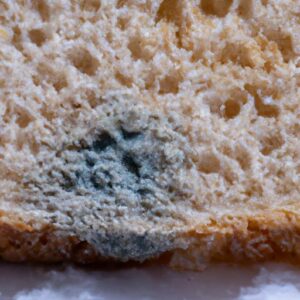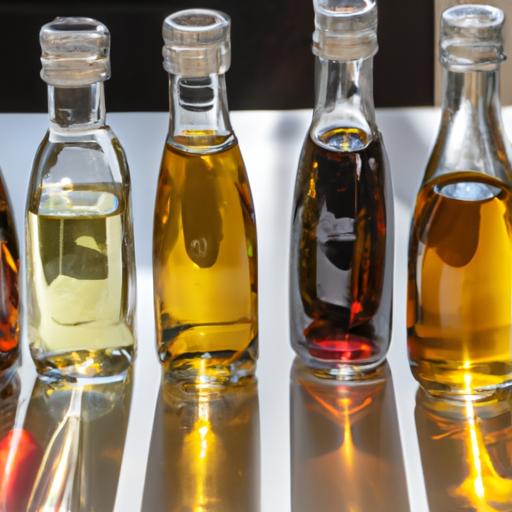Introduction
When it comes to cooking, we often overlook the little details that can make a big difference in our culinary adventures. Have you ever wondered if cooking oil can freeze? You might be surprised to learn that the freezing point of cooking oil is a crucial factor to consider. In this article, we will delve into the fascinating world of cooking oil and explore the effects of freezing on its properties.
Understanding the freezing point of cooking oil is essential for several reasons. Firstly, it helps us determine the storage conditions required to maintain the quality and freshness of our oil. Additionally, knowing the freezing point can aid in preventing potential damage to containers or packaging. By grasping the concept of oil freezing, we can ensure its optimal use in our cooking endeavors.
Freezing occurs when a substance reaches a temperature at which its particles slow down, eventually solidifying. In the case of cooking oil, freezing can have noticeable effects on its texture, appearance, and taste. Imagine trying to pour semi-solid oil from a container onto a sizzling pan – not an ideal scenario for our culinary aspirations. Furthermore, freezing can impact the cooking properties of oil, altering its ability to distribute heat evenly and potentially affecting the outcome of our dishes.
Now that we understand the significance of the freezing point of cooking oil, let’s delve deeper into the factors that determine this crucial temperature. Join me in the next sections as we unravel the secrets behind the freezing point of cooking oil and explore its implications in the kitchen.
What factors determine the freezing point of cooking oil?
A. Composition of the oil (type of fats and oils used)
The composition of cooking oil plays a significant role in determining its freezing point. Different types of fats and oils have varying chemical structures, which affects their solidification temperatures. For instance, oils high in saturated fats, such as coconut oil or palm oil, tend to have higher freezing points compared to oils with higher unsaturated fat content, like olive oil or canola oil. The molecular structure of saturated fats allows them to pack tightly, resulting in solidification at lower temperatures.
B. Presence of impurities or contaminants
Impurities or contaminants present in cooking oil can influence its freezing point. These impurities might include water, residual food particles, or other substances that can lower the freezing point of the oil. These contaminants act as “seeds” for the formation of ice crystals, facilitating the freezing process at a higher temperature than pure oil. Therefore, it is crucial to ensure that cooking oil is properly filtered and stored in clean containers to minimize impurities.
C. Processing methods and additives used in oil production
The processing methods and additives employed during oil production can also affect the freezing point. Some manufacturers utilize winterization processes to remove waxes and other solid components from the oil, thereby lowering its freezing point. Additionally, certain additives like antioxidants or stabilizers may be incorporated into the oil to enhance its shelf life and prevent rancidity. These additives can impact the freezing point, either by lowering or raising it, depending on their chemical properties.
Understanding the factors that determine the freezing point of cooking oil allows us to make informed decisions in the kitchen. By selecting the appropriate oil for specific cooking purposes and ensuring its purity, we can maintain the desired consistency and quality in our culinary creations. In the next section, we will explore the intriguing question: can cooking oil really freeze? Let’s find out.
Can cooking oil freeze?
Freezing points of different types of cooking oil
Cooking oils vary in their composition, and as a result, they have different freezing points. For instance, olive oil has a lower freezing point compared to oils like coconut or peanut oil. The freezing point of a particular oil depends on the types of fats and oils used in its production. Saturated fats tend to have higher freezing points, while unsaturated fats have lower freezing points. It’s important to note that the presence of impurities or contaminants in the oil can also affect its freezing point.
Factors that can affect the freezing point of cooking oil
Several factors can influence the freezing point of cooking oil. One such factor is the processing methods and additives used during oil production. Some oils undergo refinement processes that can alter their freezing properties. Additionally, the presence of additives like antioxidants or preservatives can impact the freezing point of the oil. It’s crucial to consider these factors when determining the freezing point and storage conditions for different types of cooking oil.
Examples of scenarios where cooking oil may freeze
Cooking oil freezing can occur in various situations. For instance, if you store your oil in a cold environment, such as a refrigerator or a freezer, it may solidify due to the low temperatures. Similarly, during winter months, when temperatures drop significantly, cooking oil left in unheated areas can also freeze. Another scenario where oil may freeze is when it comes into contact with frozen ingredients or surfaces, such as using oil to fry frozen food directly. It’s important to be aware of these possibilities to prevent any inconvenience or damage caused by frozen cooking oil.
As we’ve seen, cooking oil can indeed freeze, and its freezing point varies depending on the type of oil and other factors. In the next section, we will explore the consequences of cooking oil freezing and how it can affect its properties. Stay tuned!
How to Prevent Cooking Oil from Freezing?
A. Storage recommendations to avoid oil freezing
Proper storage is key to preventing your cooking oil from freezing. To ensure the longevity and quality of your oil, follow these recommendations:
-
Temperature control: Store your cooking oil in a cool, dry place away from direct sunlight and heat sources. Aim for a temperature below the oil’s freezing point to keep it in its liquid form.
-
Seal it tight: Always make sure the container is tightly sealed to prevent air exposure and potential moisture absorption, which can contribute to freezing.
-
Choose suitable containers: Opt for containers that are made of materials resistant to extreme temperatures, such as glass or stainless steel. These materials can withstand freezing temperatures without cracking or compromising the oil’s integrity.
B. Tips for maintaining optimal temperature conditions
Besides proper storage, there are additional measures you can take to maintain optimal temperature conditions for your cooking oil:
-
Avoid temperature fluctuations: Rapid changes in temperature can cause condensation inside the container, leading to moisture buildup and increased chances of freezing. Try to keep the oil at a consistent temperature.
-
Use a cool, dark storage space: Find a spot in your pantry or cupboard that remains consistently cool, away from any heat sources or direct sunlight.
-
Consider refrigeration: If you live in an exceptionally warm climate or your kitchen tends to get hot, refrigerating your cooking oil can help maintain a stable temperature and reduce the risk of freezing.
C. Alternative solutions when encountering freezing cooking oil
In the unfortunate event that your cooking oil does freeze, don’t despair. There are a few alternative solutions you can try:
-
Thaw it gently: Place the frozen oil in a warm water bath or let it sit at room temperature until it returns to its liquid state. Avoid using direct heat, as this can compromise the quality of the oil.
-
Blend it: If the texture of the oil becomes grainy or uneven after thawing, you can try blending it using a blender or immersion blender to restore its smoothness.
By following these storage recommendations, maintaining optimal temperature conditions, and employing alternative solutions when needed, you can effectively prevent cooking oil from freezing and ensure its usability in your culinary endeavors.


